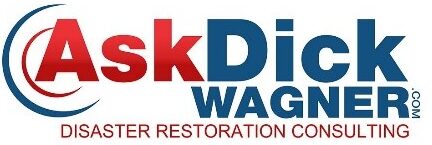We often hear about setting goals, targets, or quotas. The funny thing is some “experts” tell you to set goals that are realistic or achievable. Reality tells us something completely different. If the goal is realistic or ‘doable’ then we’re not really reaching very much. If it’s so achievable that it can likely be accomplished, then we haven’t made the goal or target something to really strive for.
“experts” tell you to set goals that are realistic or achievable. Reality tells us something completely different. If the goal is realistic or ‘doable’ then we’re not really reaching very much. If it’s so achievable that it can likely be accomplished, then we haven’t made the goal or target something to really strive for.
There’s a book by Grant Cardone titled “The 10X Rule” where he advocates for making your goals 10 times what you think they could be. Sure, many times we don’t get where we are going, but the concept is solid since it forces us to diligently strive for what may be an elusive goal. If your goal isn’t waaay out there, you’ll never push yourself to do more than what’s average.
The real reason that people succeed greatly in life or business is often because they were stretching a long way past average. Average never yields anything past average – and usually much less. Anything that you give ‘average’ amounts of attention will subside and eventually cease to exist. Any undertaking (a project or goal) that includes accepting average will fail you sooner or later. It’s quite simple: Average is a failing Formula.
If you have a goal of bringing in $500,000 in revenue for your company because that’s average or realistic, you likely won’t bring in a Million dollars, even though many of my marketers routinely achieve the million-dollar target – year after year. You might set that goal thinking that’s a reasonable average, but that means you probably cheated your boss out of another ½ million dollars and cheated yourself out of $25-30,000 in commissions that year! Why would you want to do that to yourself – or your boss?
Incredibly, the addiction to “average” in our society makes it seem acceptable or normal. The true ultra-high performers (in any field) will never be an ultra-high performer if they only strive for average performance. To become truly great at something, you have to dedicate time and energy to it. And because we all have limited time and energy, few of us ever become truly exceptional at more than one thing if anything at all.
 Which leads to an important point: that mediocrity, as a goal, sucks. But mediocrity, as a result, is OK as a last resort. Because you are going to have some failures. Remember, average will ultimately draw you into mediocrity. And most of us don’t want to be there! Mediocre means “average.” In any population, by definition, exactly half of that population is above average, and the other half is below average. When you look at it that way, there’s nothing wrong with being mediocre at many or most things in your life. The trick is to find the one or two things that you excel at.
Which leads to an important point: that mediocrity, as a goal, sucks. But mediocrity, as a result, is OK as a last resort. Because you are going to have some failures. Remember, average will ultimately draw you into mediocrity. And most of us don’t want to be there! Mediocre means “average.” In any population, by definition, exactly half of that population is above average, and the other half is below average. When you look at it that way, there’s nothing wrong with being mediocre at many or most things in your life. The trick is to find the one or two things that you excel at.
Every single person on this Earth has a special talent — yes, that includes you.
So: be curious in many things, lean into your work or projects, line up people to cheer you and for you. Bill Gates said, “What you believe is what you achieve.” Be extraordinary … average is not good, great is not good enough … standing out, helping people to stand out, and being an ultra-high achiever is what you should be doing. Your life and your paycheck will be rewarded.
Consider the case of the statistician who drowns while fording a river that he calculates is, on average, three feet deep. If he were alive to tell the tale, he would expound on the “flaw of averages,” which states, simply, that plans based on assumptions about average conditions usually go wrong. This basic but almost always unseen flaw shows up everywhere in business, distorting accounts, undermining forecasts, and dooming apparently well-considered projects to disappointing results.
Author: Dick Wagner, Co-founder of The CREST Network and CRESTLibrary.com
 By Dick Wagner, Co-Founder The CREST Network, LLC
By Dick Wagner, Co-Founder The CREST Network, LLC
Nationally recognized coach, consultant, trainer, and speaker
Creator of the renowned PREP™ pre-disaster program
Owner of AskDickWagner.com BLOG
Copyright© 2023 The CREST Network, LLC All Rights Reserved
No Part Of This Document May Be Reproduced In Any Form Without Written Permission
